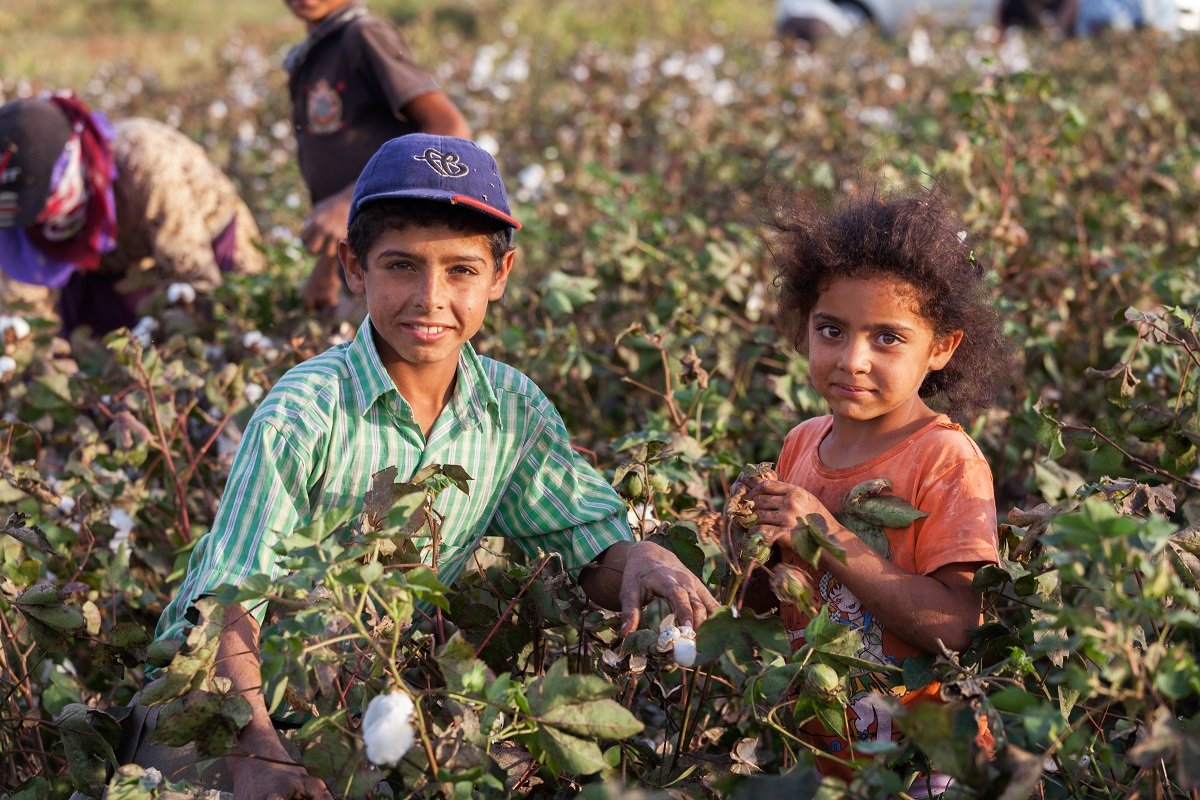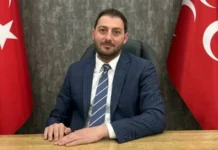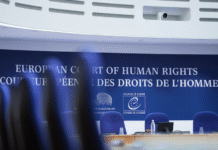Turkey has been classified as a high-risk country for torture and ill-treatment in the first edition of a new international index, Turkish Minute reported.
The Global Torture Index 2025, released by the World Organisation Against Torture (OMCT) on June 25, puts Turkey in the second-highest risk tier among 26 countries assessed, citing widespread allegations of torture, unchecked police violence and legal and institutional barriers that block accountability.
Developed in cooperation with three Turkish civil society groups — the Human Rights Association (İHD), the Lawyers for Freedom Association (ÖHD) and the Foundation for Society and Legal Studies (TOHAV) — the index evaluates national performance across seven thematic pillars. These include political commitment, detention conditions, civic space, victim protection and the legal framework for redress.
According to the index’s country factsheet on Turkey, the high-risk rating is based on data collected in 2023 and 2024, a period marked by persistent rights violations and the continued use of emergency powers introduced after a failed coup in July 2016. Although the state of emergency was formally lifted in 2018, many of its decrees and practices remain in place.
OMCT’s analysis shows that torture and ill-treatment are particularly common during politically charged investigations under Counterterrorism Law No. 3713, which Turkish authorities routinely use to arrest perceived opponents, including journalists, Kurdish activists and critics of the government. The law’s vague language and broad definition of terrorism allow for expansive application with little judicial oversight.

Highest prison population in Europe, life sentences without parole
Turkey now has the largest prison population and the highest incarceration rate among the 46 member states of the Council of Europe, with more than 416,000 people behind bars and an incarceration rate of 424 per 100,000. The prison system is severely overcrowded, operating at 109.2 percent capacity, according to the index.
Among those incarcerated are more than 4,000 people serving life sentences, many of whom are denied parole or rehabilitation programs. In a 2014 judgment, the European Court of Human Rights (ECtHR) found that Turkey’s life sentencing regime violates the prohibition of inhuman or degrading treatment by denying prisoners the “right to hope” — a chance to reintegrate into society.
The Nelson Mandela Rules, adopted by the United Nations, define solitary confinement of more than 22 hours per day for more than 15 days as a form of torture. The index notes that inmates in Turkish high-security prisons are often held in such conditions.
Police violence and impunity
The index finds that police brutality and the use of excessive force remain widespread, particularly during protests. The use of tear gas, plastic bullets, water cannons and beatings — often in response to peaceful assembly — has been repeatedly documented. Law enforcement officers frequently operate with impunity, aided by legal requirements that shield public officials from prosecution unless administrative permission is granted.
More than 7,500 torture complaints have been submitted over the past decade, including 781 in 2023 alone, but Turkey has failed to provide disaggregated data on investigations, charges or convictions. The index categorizes Turkey’s response to impunity as high risk, reflecting systemic barriers to justice and a lack of political will to prosecute perpetrators.
Legal gaps and weakened oversight
Although Turkey has ratified the UN Convention Against Torture and its Optional Protocol (OPCAT), it has not ratified the International Convention on Enforced Disappearances, despite at least 1,388 documented cases, including 233 involving burial sites.
Domestic legislation also falls short. Article 94 of the Turkish Penal Code, which defines torture, is not fully aligned with international standards. Turkey’s National Human Rights and Equality Institution (TİHEK) — which functions as the country’s torture prevention mechanism — is criticized in the index as lacking independence. All of its members are appointed by the president, and the institution has been reluctant to report on documented cases of torture.
Gender-based violence and discrimination in detention
In 2021 Turkey withdrew from the Council of Europe Convention on Preventing and Combating Violence Against Women and Domestic Violence, widely known as the Istanbul Convention. The index considers this a major setback for protections against gender-based abuse.
It finds that women in custody, including new mothers, are frequently detained in poor conditions and lack adequate healthcare. LGBTQIA+ individuals face systemic discrimination and are more vulnerable to abuse while detained. Civil society groups attempting to monitor these cases are denied access.
The situation for children and migrants in detention is also troubling. Children held with their mothers face a lack of education and basic services, while asylum seekers in deportation centers often experience overcrowding, language barriers and inadequate legal representation. The İzmir Harmandalı Removal Center is specifically cited for abuse and intimidation of lawyers defending refugees.
Shrinking civic space and political repression
The index scores Turkey as high risk in the “right to defend and civic space” pillar, noting that dissent is criminalized under terrorism laws and public order statutes such as Law No. 2911 on Meetings and Demonstrations. Since 2020 civil society organizations receiving foreign funding have faced intensified government scrutiny, and Kurdish activists, journalists and LGBTQIA+ advocates are often targeted for prosecution.
Freedom of expression is severely restricted, according to the index. The OMCT notes that prison sentences of up to 18 years have been handed down for nonviolent protests and the fact that Turkey has refused to release Osman Kavala, a prominent rights defender, despite a binding order from the Grand Chamber of the European Court of Human Rights issued in July 2022.
Transparency: “Circumscribed”
The Global Torture Index uses a five-tier scale to assess access to public information, ranging from “transparent” to “suppressive.” Turkey is rated as “circumscribed,” meaning that access is restricted, especially for independent journalists and civil society groups. Notably, the government has refused to publish the last three reports from the European Committee for the Prevention of Torture (CPT) and the UN’s Subcommittee on Prevention of Torture.
The index recommends that Turkey ratify the International Convention on the Protection of All Persons from Enforced Disappearance and revise its penal code to reflect the international definition of torture. It also urges the government to address prison overcrowding and ensure that detainees have access to adequate healthcare provided by independent medical professionals.
Authorities should conduct prompt and impartial investigations into all torture allegations and guarantee that perpetrators are prosecuted and victims receive redress. Training programs for law enforcement officers, judges, medical staff and other relevant personnel should be implemented in line with the Istanbul Protocol, with a particular focus on handling sexual and gender-based violence.
Finally, the index calls on Turkey to amend or repeal its counterterrorism and protest legislation, which has been used to criminalize peaceful dissent and the work of civil society organizations.
Turkey joins a list of 12 countries rated “high risk,” including India, Mexico, Tunisia, and the Philippines. Six countries — Belarus, Russia, Bahrain, El Salvador, Ethiopia and Libya — received the “very high risk” designation.
“The Index is an indicator of the resilience of the rule of law in times of growing authoritarianism, polarization and inequality,” says Gerald Staberock, secretary-general of OMCT. “It reflects how just, healthy and safe our societies are.”
“None of the 26 countries — no region, political system, or society — is immune to the temptation of torture,” said Verónica Hinestroza, associate expert at the Omega Research Foundation and Global Torture Index Steering Committee member. “By providing data and analysis on the risk of torture, we are bringing torture out of the shadows. The Index is not just a measurement tool — it is a wake-up call for governments and societies to act against this prohibited practice.”
Allegations of torture and mistreatment have become worryingly common in Turkey following the coup attempt, when thousands of people were detained and arrested on bogus terrorism or coup charges.
According to a report by the UN special rapporteur on torture and other cruel, inhuman or degrading treatment or punishment, on his mission to Turkey from November 27 to December 2, 2016, “torture and other forms of ill-treatment were widespread” in Turkey.
The report found there were numerous consistent allegations received by the special rapporteur in the immediate aftermath of the failed coup and that torture and other forms of ill-treatment were widespread.
The special rapporteur heard persistent reports of severe beatings, punches and kicking, blows with objects, foot whipping, threats and verbal abuse, being forced to strip naked, rape with objects and other sexual violence or threats thereof, sleep deprivation, stress positions and extended blindfolding and/or handcuffing for several days, according to the report.















